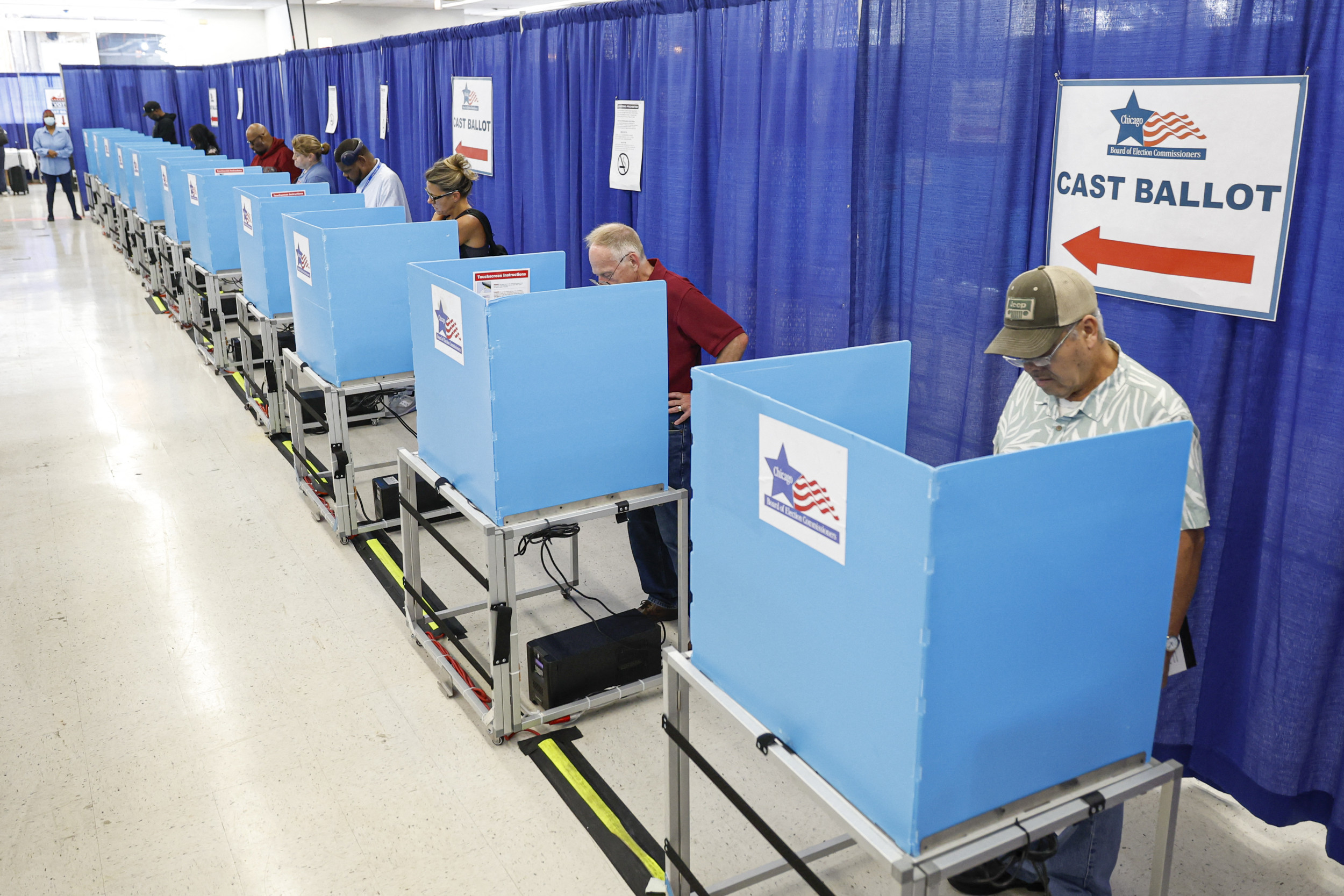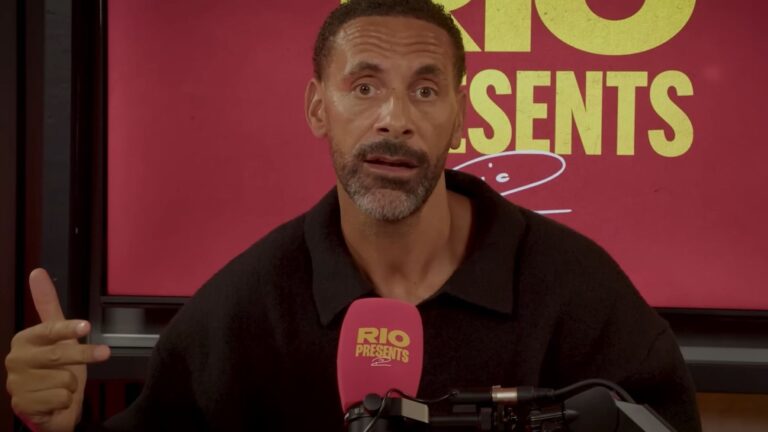What early voting polls say about the 2024 election
Millions of Americans have already cast their ballots in the 2024 election, although the results of early voting only offer a peek into how candidates are performing in what’s expected to be one of the closest elections in history.
Nearly every state offers some form of early voting in the weeks leading up to Election Day. On Monday, the polls opened in Florida and Texas, while key swing states like Georgia and Nevada opened their polling booths last week.
Preliminary polling has shown that Vice President Kamala Harris is well ahead of former President Donald Trump among voters who turned out early, but the lead is hardly indicative of who is ahead overall. Democratic voters are typically more in favor of early voting than Republicans, and Trump has repeatedly claimed, without merit, that mail-in voting options invite the chance for election fraud.
But this fall, Trump and the GOP switched course, encouraging voters to turn in a ballot in any way they can, although Trump has still described early voting as “stupid stuff.”
“We got to get out and vote,” the Republican nominee told supporters at a rally in Pennsylvania last month. “And you can start right away. You know that, right? Now we have this stupid stuff where you can vote 45 days early. I wonder what the hell happens during that 45.”
Where Has Early Voting Begun?
Forty-seven states, as well as the District of Columbia, offer early voting and mail-in ballots to all registered voters.
The dates for early voting vary by state. Polling locations in Minnesota, South Dakota, Virginia and Vermont opened up in September. In states like Kentucky and Oklahoma, early voting is opened less than a week before Election Day.
Two key swing states—Georgia and North Carolina—saw a record turnout on their first day of early voting this election cycle. Over 310,000 votes were cast in the Peach State on Tuesday, and by Friday, over 1 million voters had sent in their decision either in person or by mail. In North Carolina, election officials said more than 353,000 ballots were cast on the first day of early voting on Thursday.
Some states—Alabama, Mississippi and New Hampshire—don’t offer any form of early voting unless a voter has an excuse, such as military deployment. In places like North Dakota and Pennsylvania, early voting is set up by county officials, not at the state level.
Who Is Leading the Polls?
Polling has shown that Harris has a significant lead among early voters. In a survey released Monday by USA Today and Suffolk University, the vice president was up 63 percent to 34 percent among those who have already voted.
But the same poll found that Trump was ahead by double digits among those who said they plan to vote on Election Day, leading Harris 52 percent to 35 percent. The survey was conducted over the phone from October 14 to October 18 and is based on the responses of 1,000 likely voters.
According to NBC News, which uses the firm TargetSmart to collect voter data, nearly 14.5 million people have cast a mail-in or in-person ballot in the 2024 election as of Monday. Of those voters, 46 percent are Democrats, while 29 percent are registered Republicans. A quarter of early voters are not affiliated with either major party.
Nearly an equal amount of registered Democrats and Republicans have voted early in several key battleground states. In Georgia, 49 percent of all early votes have come from Republicans, while 46 percent have come from Democrats. The gap was similar in Nevada (40 percent Democrat, 35 percent Republican) and North Carolina (36 percent Democrat, 33 percent Republican) as of Monday.
In Arizona, registered Republican voters are slightly outperforming Democrats, 44 percent to 35 percent. Democrats are well ahead in Pennsylvania (67 percent to 27 percent), Minnesota (54 percent to 36 percent) and Wisconsin (40 percent to 19 percent).
Most forecasters have projected this year’s matchup between Harris and Trump as a toss-up. On Monday, Harris was ahead of Trump by 1.8 points (48.2 percent to 46.4 percent) on average across national polling, according to FiveThirtyEight. But the polling site’s election model favors Trump to win the Electoral College, 52 percent to 48 percent.
Harris and Trump are also tied in most battleground states, according to FiveThirtyEight’s polling tracker, although the former president has a slight lead in North Carolina, Georgia and Arizona as of Monday.
When reached for comment on early voting turnout, Republican National Committee spokesperson Anna Kelly told Newsweek via email, “Even after the Democrats have spent over $200 million trying to redefine Kamala Harris, President Trump is winning or tied in every battleground because his message is resonating with voters across the country.”
Newsweek reached out to Harris’ campaign via email on Monday for comment.
When Is Election Day?
Per federal law, Election Day always falls on the Tuesday following the first Monday in November. This year, the election falls on November 5.
Election Day is not recognized as a federal holiday, although roughly a dozen or so states observe it as a holiday, meaning that most state offices are closed that day. Most states also offer employees some sort of time off to vote.
What Happens If Trump Loses?
Many experts have warned that the former president and his allies are already sowing doubt about the election to mount a challenge against the results if he loses next month.
Trump has maintained that the 2020 presidential election, in which he lost to President Joe Biden, was stolen from him due to election fraud. There has been no evidence to support such claims, but some of Trump’s closest confidants, including GOP Representative Marjorie Taylor Greene of Georgia, have repeated debunked criticisms about this year’s election systems. After her state’s early voting opened last week, Greene pushed the familiar conspiracy theory that Dominion Voting Systems machines are “switching” early votes in favor of Democrats. Officials from Dominion as well as Georgia have denounced such claims.
During a news conference in North Carolina on Monday, Trump told reporters that he has “not seen” any signs that suggest this year’s election would not be fair, although he added that he knows “the other side, and they are not good.”
Unlike four years ago, Trump does not have the same presidential powers to leverage if he is unhappy with the election results this time around. But he could still contest the election through the legal system as a private citizen—Trump filed multiple lawsuits seeking to challenge the 2020 election results but they were all dismissed in court.
Trump last month threatened jail time against “Lawyers, Political Operatives, Donors, Illegal Voters, & Corrupt Election Officials” who are found to have “cheated” if he wins a second term in the White House. He also recently threatened to use military power to go after the “enemy from within” if he is victorious in November.
Steve Cheung, spokesperson for Trump’s campaign, told Newsweek during the weekend that the former president was “100% correct—those who seek to undermine democracy by sowing chaos in our elections are a direct threat, just like the terrorist from Afghanistan that was arrested for plotting multiple attacks on Election Day within the United States.”
How Does This Year Compare to 2020?
The 2020 presidential election, amid the COVID-19 pandemic, saw a record number of early voters, and Democrats turned out in much higher numbers than their Republican counterparts.
By October 16, 2020, over 22 million Americans had cast a ballot in the election, which made up 16 percent of the total votes cast in the 2016 presidential election. At that point in the election, according to the Associated Press, Democrats outvoted Republicans 2-1.
According to Michael McDonald, University of Florida political scientist who tracks voting for his site ElectProject.org, as of October 25, 2020, nearly 60 million people had voted in the general election. At that point in the race, Democrats were still outperforming Republicans 2-1 among mail-in ballots, but the parties were about even for those who voted in person.
By November 1, 2020, 93 million ballots had been cast, according to McDonald. The 2020 election went on to experience the largest increase in voting between presidential elections in U.S. history, with 17 million more people casting a ballot than in 2016.
KAMIL KRZACZYNSKI/AFP via Getty Images







